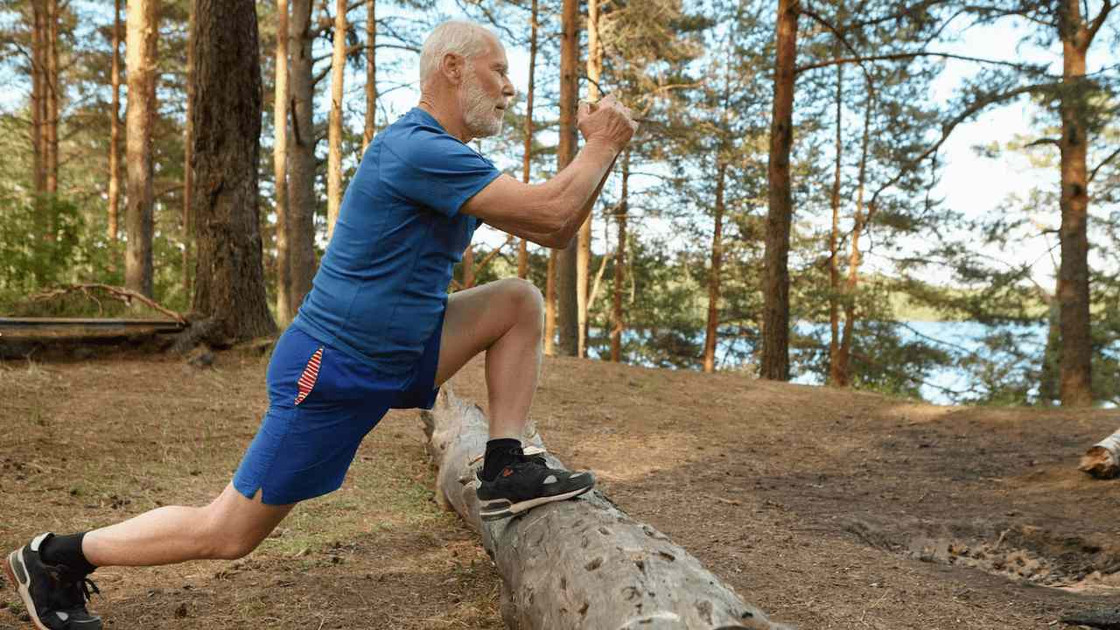How To Keep Your Joints Healthy As You Age?
Posted by Dona on Mar 2nd 2023
There's an old saying that "prevention is better than a cure", and it's absolutely true regarding your joint health. Unfortunately, most people pay little attention to their joint health until the moment their joints start hurting, and by that time, it may have been too late!
However, your joint health deserves all the attention it can get for you to lead a comfortable life. When you keep your joints healthy from an earlier age, you can prevent numerous conditions that would otherwise cause great discomfort in your later years. Now, before we talk about how to keep joints healthy as you age, let us first discuss why it's essential to do so.
Importance Of Keeping Your Joints Healthy
Everybody knows what joints are; they are the connecting points between our bones that enable body movement. But not everyone knows how these joints work. Our joints are like a complex machine, made up of cartilage, ligaments, tendons, and synovial fluid. The ligaments and the tendons in the joints allow free movement without any resistance, the cartilage provides cushioning for bones, and the synovial fluid works like oil in a machine, reducing the friction between bones. In short, your joints are made so that you can walk, bend, grasp, and lift effortlessly and without pain.
Importance of Joint Health As We Age
It is imperative that you keep your joints healthy, as any deterioration in your joint health can lead to severe discomfort in your life or even disability! As we age, it's normal for our bones and joints to deteriorate over time and cause issues like arthritis, strains, or sprains. But being older in no way means that you have to live in constant, agonizing pain. In fact, with a little determination and some lifestyle changes, you can make sure that your later years are spent comfortably.
Effects Of Neglecting Joint Health
Joint deterioration can cause severe damage to your everyday life, as it can cause pain, inflation and stiffness, and in extreme cases, it may even affect your ability to move freely. Individuals affected with degenerative joint conditions have difficulty doing everyday chores like grabbing items, pushing or pulling objects, lifting weights and sitting or standing for long periods. Moreover, joint deterioration also has a direct effect on your overall health and well-being.

How To Keep Joints Healthy As You Age
Joint pain is an entirely natural phenomenon, but it does not mean that you lose hope. Instead, it should motivate you to take steps to keep your joints healthy in your later years.
So, how to keep your joints healthy as you age? Let's explore the answer!
Tips For Keeping Joints Healthy
Here are five tips for keeping joints healthy as you progress to old age:
Engage In Exercise And Physical Activity
The best way to keep joints healthy as you age is by keeping yourself active and doing exercise regularly. Though some are concerned that too much exercise itself can lead to joint problems, it must be understood that excess in anything is bad for you. Regular, moderate exercise can, in fact, do wonders for your permanent joint health!
Types of Exercises That Are Beneficial For Joints
Try the following exercises to keep your joints healthy:
Strength training: Strength-training exercises are shown to improve muscle strength and encourage improved joint function. These exercises can keep your joints healthy and help relieve pain in osteoarthritis affectees.
Walking: If strength training is not viable, you can opt for low-impact exercises like walking to improve your joint health. They put less stress on your joints, and the steady movement helps increase blood flow, which is responsible for supplying the necessary nutrients to your cartilage to protect your bones and joints. Recent studies have also shown that walking helps relieve pain in patients affected with knee osteoarthritis.
Neuromuscular training: Neuromuscular training is used to train your nerves and muscles for better control and mobility. This activity is designed specifically to increase knee joint strength and can help older people in boosting physical activity.
Aquatic exercise: Studies have shown an improved thickness of knee joint cartilage in people that perform aquatic exercises. Moreover, while aquatic exercises offer a steep challenge, they are easy on the joints.
Adopting a more active lifestyle is pivotal to keeping your joints healthy as you age, more so if your work or daily routine includes a lot of sitting at a computer.
Maintain a Healthy Diet
Joint health is directly influenced by the food we eat, so it's crucial that we pay attention to our diet to maintain good joint health. Diet affects our joint health in two different ways:
- A healthy diet can help you lose weight, which can reduce stress on your joints and leave a positive effect on your long-term joint health.
- A healthy diet also provides the necessary nutrients and minerals required for healthy joints.
Chronic inflammation is considered to be one of the significant risk factors of developing conditions like arthritis. Specific diets are effective for fighting inflammation of the joints, and these foods include:
- Leafy Vegetables
- Berries
- Nuts
- Seeds
- Fatty Fish
Above mentioned foods contain important nutrients and antioxidants that can help you in achieving good joint health.
Choose The Right Supplements
In addition to that, your physician may also suggest certain supplements to go along with your regular diet. These supplements, like glucosamine sulphate or chondroitin, are believed to help support joint functionality, but not enough scientific evidence is there to support these claims. However, Dona® is not your everyday glucosamine, as it is one of the few joint health supplements supported by clinical research.
Final Thoughts
Your joint health is supposed to deteriorate with age, but it certainly does not mean that you can't do anything to have a comfortable life with better joint health in your later years.
The best way to keep joints healthy is to discipline yourself for a better lifestyle that involves regular exercise and good eating habits. Older people can also take the help of certain supplements to relieve joint pain, but such supplements should always be taken on a physician's or doctor's recommendation.
Dona® is a glucosamine sulfate that is proven effective in clinical trials and can be taken to alleviate joint discomfort. However, it goes without saying that supplements are not meant to cure any disease or condition of the joints and should only be taken when advised by your doctor.
References:
https://health.clevelandclinic.org/5-best-ways-to-safeguard-your-joints-as-you-age/
https://www.goodrx.com/well-being/healthy-aging/6-tips-for-joint-health
https://www.forthealthcare.com/5-things-you-can-do-to-keep-your-joints-healthy/
https://www.webmd.com/rheumatoid-arthritis/ss/slideshow-keep-joints-healthy
https://www.imedregeneration.com/blog/5-ways-to-protect-your-joints-as-you-age
 Cart
Cart


